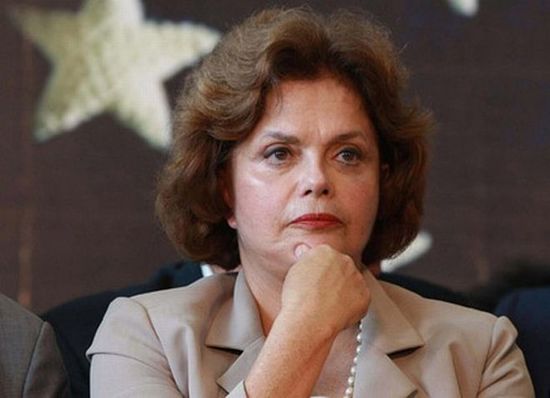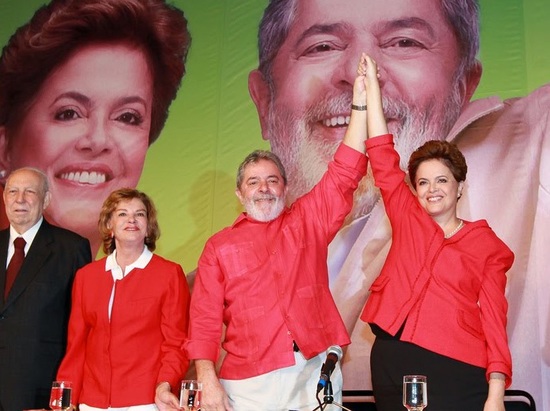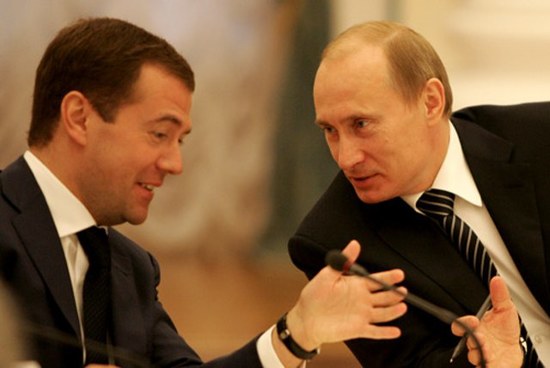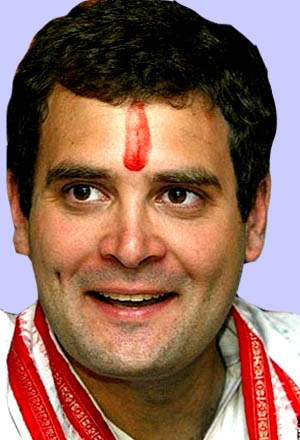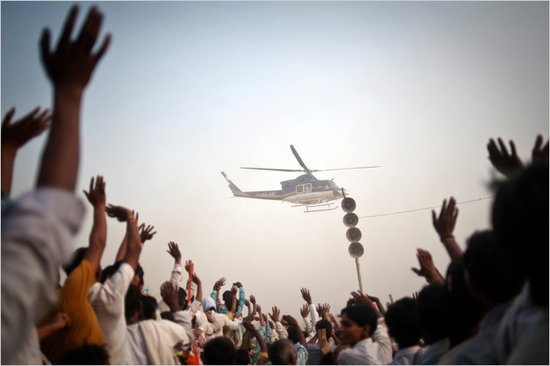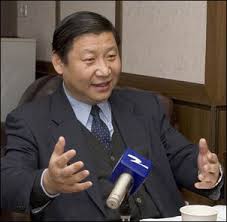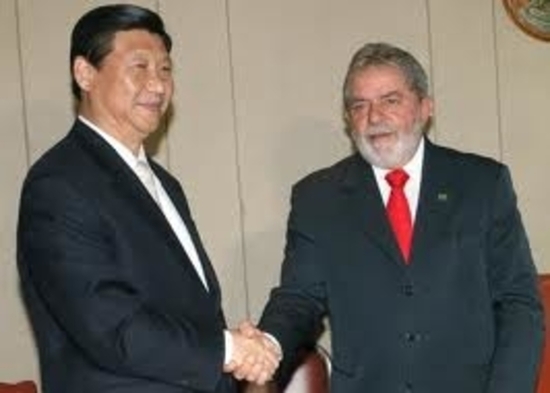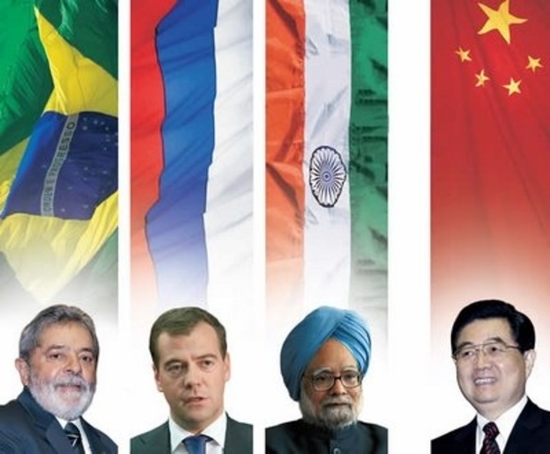
Soon a thing of the past: The first generation of BRIC leaders
When President Lula, Prime Minister Medvedev, Manmohan Singh and Hu Jintao met in Brasília in April 2010, Lula sadly noticed that this would be his last BRIC summit. His mandate ends in December 2010. Similarly, the three other leaders’ time in office is slowly but surely coming to an end. Rumors have it that Dmitry Medvedev will step down soon to pave the way to Vladimir Putin to return to power for yet another two presidential terms. Manmohan Singh, India’s sage-like leader, could theoretically stay in office until 2014, but is expected to step down by 2012 and make room for 40-year old Rahul Gandhi. Finally, Hu Jintao’s time in office will end when the fifth generation of Chinese leadership takes over during the 18th Party Congress in 2012.
Each leader’s personality played a key role in the shaping of his country’s foreign policy. Lula, Medvedev, Singh and Jintao are the four leaders who decided to turn Jim O’Neill’s BRIC label into political reality, which fundamentally shaped the way we understand the world during this century’s first decade. How will the looming change of guard affect each country’s foreign policy? Will the BRIC alliance survive under the next generation of leaders? While none of the future leaders has been confirmed, we are already able to make an educated guess- and speculate what their leadership will mean for the future of the BRICs.
Brazil: Papa says goodbye, mama takes over
While opinion polls in Latin America have been notoriously unreliable, it seems increasingly likely that Dilma Rousseff will be elected Brazil’s first female President on October 3. Ms. Rousseff, Lula’s chief of staff, had been practically unknown prior to the election campaign. Yet President Lula has carefully groomed his successor over the past two years, and tirelessly campaigns for her. His efforts and her ability to avoid any major gaffes allowed her to cruise to a 20-point lead in the opinion polls. Her major opponent, the social democrat José Serra, has been helplessly watching how Brazil seems to accept the President’s shrewd narrative: After eight years in power, Lula, Brazil’s benevolent father figure, hands over to Ms. Rousseff, who, as the mother figure, will continue to assure that “everybody will be taken care of”, as Lula puts it. His opponents accuse Lula of infantilizing the voters, but the President’s supporters rightly point out that Lula’s sky-high approval ratings and his effortless ability to project his popularity onto Ms. Rousseff have only been possible because José Serra’ PSDB failed dismally to act as a strong opposition over the past four years. The PSDB, at the height of power under the Cardoso administration, may disintegrate if Rousseff wins an absolute majority in the first turn on October 3. Unless she commits any serious mistakes, she can be expected to stay in power for two terms, until 2018.
How will Ms. Rousseff lead South America’s giant? Most likely, she will continue Brazil’s foreign policy characterized by a diversification of allies and a strong focus on partnership with the “South”, i.e. the developing world. The question of how strong Lula’s influence will be during Ms. Rousseff’s first term divides pundits. Some go so far to call it “Lula’s third term”, others predict that Ms. Rousseff will ruthlessly cast aside her predecessor once she is in power. Since she is no party politician, having joined the PT at a later stage in her career, she may not be able to bring the Workers’ Party’s leadership into line without Lula’s helping hand. Lula’s continued influence may be a good thing: Over the past eight years, he has acted as a moderating force against more radical elements in his government that are fiercely anti-American. Brazil under Ms. Rousseff can therefore be expected to continue the current policy of strengthening ties to Russia, India and China.
Russia: Vladimir is here to stay
After eight years as Russia’s President (2000-2008), Vladimir Putin decided to allow his protegé and former chief of staff, Dmitry Medvedev, to polish his CV and collect some presidential experience. Handsome Dmitry does not tire to talk about civil and economic liberties, while Putin remains the real leader and pulls the strings as Russia’s Prime Minister. Since then, there have been persistent rumours that Putin is set to return. In late 2008, President Medvedev signed a law that prolongs presidential terms from four to six years, which allows his future boss to serve at least another twelve years. If he returned to power after a snap election in 2011, Putin is likely to remain in power until 2023.
Under Putin, a basic truth remains. For Russia, a state caught in the complex mix of demographic decline, shrinking civil liberties and strong dependence on oil and gas, being part of the BRICs has done more than any image campaign could ever buy. Contrary to the other BRIC members’ dynamism, Russia’s star is fading. It therefore has a strong interest in institutionalizing the BRIC alliance and strengthening ties to Brazil, India and China. The historic agreement between Russia and Brazil, which allows visa-free travel between the two, in effect since 2010, is an impressive example of this strategy.
India: Rahul Gandhi takes over the family business
After years of dithering, 40-year old Rahul Gandhi seems to have reluctantly accepted that he cannot escape his destiny to follow his family’s tradition and to lead India. His great-grandfather Nehru, his grandmother Indira Gandhi and his father Rajiv Gandhi have all taken on the onerous task of Prime Ministership. In 2004, after Congress beat the incumbent BJP, Rahul’s mother Sonia Gandhi could have become Prime Minister but took a pass and opted for Manmohan Singh, a technocrat and former finance minister. The instinct of self-preservation may have played a role in Sonia Gandhi’s decision: Both Indira Gandhi, her mother-in-law, and Rajiv, her husband, have been assassinated. Many observers have since argued that Manmohan Singh, a man of admirable modesty and competence, has been the best Prime Minister in India’s history. Singh has consistently strengthened ties to Brazil, Russia and China. His efforts to foster economic ties with China to reduce tensions has been one of his most important initiatives.
Yet even Singh has not changed India’s obsession with the Gandhi dynasty. Member of parliament since 2004, Rahul has become the Congress Party’s Secretary in 2007. In 2009, he organized the Congress Party’s election campaign and was widely credited with assuring the party’s most impressive victory since 1991. Singh is expected to step down in 2011 or in early 2012 to make space for “the man who will be king”, as the Times of India recently put it. Gandhi travels more than any other politician, and his visits by helicopter to small villages often draw crowds of up to 100,000 people. Despite his high visibility in India’s media, Rahul has been careful to avoid delicate topics. He categorically refuses to give interviews, and has never been tested in a live debate. This is often seen as a deliberate attempt to maintain the mystique that surrounds his persona. It is therefore difficult to guess Rahul’s views on foreign policy. He is more cosmopolitan and internationalized than any of his predecessors (except Nehru, who had strong ties to England). Given his young age (those who lack the Gandhi name usually do not rise to power before they turn grey), Rahul may bring radical change to India’s foreign policy and throw old notions of non-alignment overboard. He is diligently building an international network and is said to be friends with Xi Jinping, the man who is expected to lead China after 2012. Predicting India’s foreign policy is therefore extremely difficult. Worse, we may not find out until the day he turns Prime Minister.
China: Meet the fifth generation
Deciphering the inner works of China’s Communist Party is no easy task, and often the Politburo, the party’s most powerful organ, often changes its mind in the last minute. Yet when asked to predict who will take over as China’s President, the majority of analysts now point to Xi Jinping, currently China’s Vice President. Contrary to Dilma Rousseff and Rahul Gandhi, Xi Jinping can look back to years of experience in several parts of government. In 2009, he was already part of the TIME’s list of the 100 most powerful people. As governor of the Fujian Providence, he became famous for acting tough on corruption and for attracting foreign investment, principally from Taiwan. Xi Jinping is member of the Communist Party since 1971, and responsible for overall cadre-training and ideological education in China, yet he is known for his pragmatism and willingness to question long-held ideologies. His successful management of the Beijing Olympics in 2008 proved that is a skilled administrator as well.
If chosen, Xi Jinping is likely to lead China until 2022. Towards the end of his term, China may overtake the United States and become the world’s largest economy. How he will manage this delicate process is anyone’s guess. Yet his vast administrative experience have helped him appreciate the importance of open markets and foreign investment in China, which is crucial to maintain strong growth and avoid social unrest. In 2009, Xi Jinping embarked on a tour through Latin America, a region that has turned into a crucial supplier of raw materials for the resource-hungry Chinese economy. In the same vein, he can be expected to maintain warm relations to Russia, a major provider of gas and oil. If anything can make or break the BRIC alliance, it is the quality of relations between China and India. If Gandhi and Jinping manage to join hands and maintain harmonic ties, Chindia is likely to turn into the motor of the global economy. Hostilities between the two, on the other hand, would not only signify the end of the BRIC alliance, but cause shock waves around the globe. If future BRIC summits can help avert the latter scenario, they will have more than fulfilled their purpose.
Read also:
How many diplomats does an emerging power need?
What a third Lula term would mean for Brazilian foreign policy


